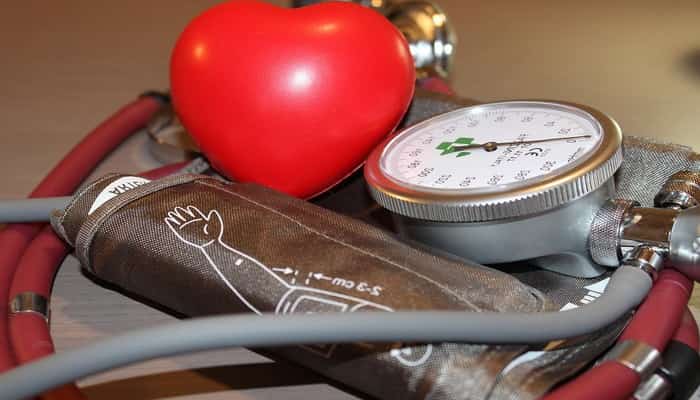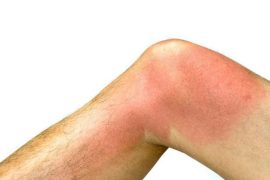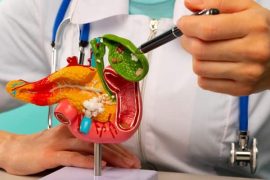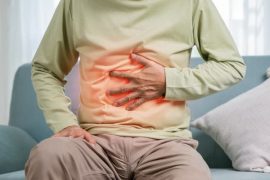Зміст
Nitroglycerin is a well-known drug used to treat thoracic angina caused by cardiac ischemia and hypoxia. Is it also effective against heart attack? I answer in the article.
In what form is nitroglycerin available?
Nitroglycerin is available in the following forms:
- sublingual spray – the solution should be sprayed under the tongue, preferably in a sitting position, due to the possible occurrence of dizziness; the drug begins to act in about 1-1.5 minutes, and the effect lasts about 30 minutes;
- ointment – rubbed into the skin of the atrial region in an area with a diameter of 2–5 cm; begins to act in approximately 10–30 minutes and lasts 4–6 hours;
- extended-release tablets – tablets must be swallowed whole, their effect lasts for several hours;
- combination tablets additionally containing pentaerythrityl tetra nitrate – to accelerate the effect, they can be swallowed whole or chewed; the additional ingredient of the drug lasts longer than nitroglycerin, lasts up to 12 hours and begins to act after 20–60 minutes;
- solution for infusion – in a hospital setting, the medicine is administered intravenously.
How does nitroglycerin work?
Nitroglycerin dilates blood vessels. This is very important in case of coronary heart disease, when the amount of blood and oxygen is insufficient. The most common cause of this condition is coronary artery disease, mainly associated with vascular obstruction caused by atherosclerosis.
During exercise or stressful situations, the heart has to work harder and faster as its need for oxygen increases. However, vessels narrowed by atherosclerotic plaques are not able to supply enough blood, which causes chest pain due to ischemia and hypoxia of the heart muscle. We call this pain angina or coronary pain. It is located behind the sternum, although it can radiate, for example, to the left arm, is suffocating in nature, reminiscent of compression in the chest, usually lasts several minutes and disappears after rest. Nitroglycerin can interrupt this pain or prevent its occurrence, which is the main indication for the use of this drug.
The antianginal effect of nitroglycerin is due to vasodilation:
- venous – because of this, less blood returns through the veins to the heart, which reduces its load and oxygen demand;
- arteries – this leads to easier ejection of blood from the heart and less load on it, which also reduces the heart’s need for oxygen;
- coronary arteries – this improves blood flow through the heart muscle and its supply of oxygen.
One of the consequences of atherosclerosis of the coronary arteries is the formation of blood clots in the vessels, completely or significantly blocking blood flow. This causes necrosis of part of the heart muscle, i.e., a heart attack. In this situation, the pain is usually stronger, lasts longer, and does not subside with rest or nitroglycerin.
If, after taking the dose of nitroglycerin prescribed by your doctor, your chest pain does not subside within 5 minutes, call an ambulance.
The sublingual spray’s instructions allow for three doses at 5-minute intervals, but this may increase the time it takes to get help (follow the directions of the emergency dispatcher).
What are the indications for the use of nitroglycerin?
Interruption of acute attacks of angina pectoris (aerosol);
- prevention of angina attacks (ointment, tablets); in case of prevention of angina attacks, you can also take an aerosol before the intended physical activity;
- acute left ventricular failure (infusion-aerosol);
- severe, unstable or vasospastic angina (infusion);
- hypertensive crisis with congestive heart failure (infusion);
Nitroglycerin, used during a heart attack, can reduce the area of damage by reducing the need for oxygen and increasing its delivery. However, there is no evidence that the use of nitroglycerin prolongs the life of patients with myocardial infarction or prevents its occurrence. Therefore, it is not used in every heart attack patient.
Can nitroglycerin be dangerous? Side effects
Nitroglycerin causes side effects that are mainly associated with vasodilation and a decrease in blood pressure.
May occur:
- headache (so-called nitrate headache),
- dizziness, drowsiness, weakness, fainting,
- facial redness,
- fast or slow heartbeat, palpitations,
- drop in pressure, especially when changing body position from lying to standing,
- worsening symptoms of angina pectoris,
- nausea, vomiting, heartburn, bad breath,
- local reactions at the injection site (for example, burning sensation in the mouth, redness of the skin),
- cyanosis and hypoxia.
Side effects and their frequency may vary depending on the type of drug and route of administration. Many of these side effects are most pronounced at the beginning of treatment and as the dose increases.
Remember that an overdose of nitroglycerin is also dangerous. It enhances the above symptoms, which are due to a significant decrease in blood flow, stagnation of blood in peripheral vessels and increased intracranial pressure.
Nitroglycerin – contraindications
Hypersensitivity to nitroglycerin, other nitrates or excipients contained in this drug;
heart diseases, such as constrictive pericarditis, aortic and mitral valve stenosis, hypertrophic cardiomyopathy with left ventricular outflow tract obstruction;
- systolic blood pressure below 90 mm Hg;
- increased intracranial pressure, for example caused by a cerebral hemorrhage or head injury;
- angle-closure glaucoma;
- vasodilators and so-called phosphodiesterase 5 (PDE5) inhibitors: sildenafil, vardenafil, tadalafil.
The combined use of nitroglycerin and popular strong drugs, including over-the-counter drugs belonging to the PDE5 inhibitor group, can lead to a very strong drop in blood pressure. It may even lead to loss of consciousness. You can take nitroglycerin no earlier than 24 hours after taking sildenafil or vardenafil and 48 hours after taking tadalafil.
Nitroglycerin may affect your ability to drive or operate machinery due to possible dizziness and fainting. Be careful, especially when you first start taking the medicine. The drug should be discontinued carefully and gradually to avoid worsening the symptoms of coronary heart disease.
In the case of nitroglycerin and other nitrates, tolerance to their effects is observed with loss of effectiveness, which develops after several hours of continuous presence of nitrates in the body. To avoid this, take these medications in the lowest effective dose and try to take at least 8 hours off during the day.
Do not take or give nitroglycerin to others if you have angina or suspect a heart attack unless directed first by your doctor. If you suspect a heart attack, call 911.








